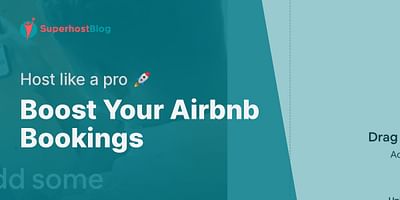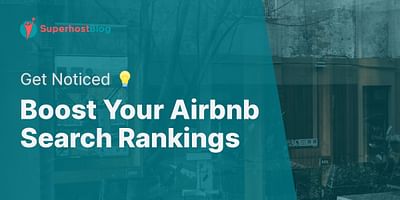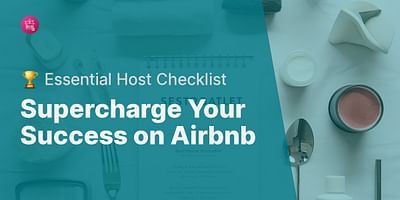Logan is a seasoned Airbnb host dedicated to curating unique and unconventional lodging experiences. With a rich background in architecture, he thrives on repurposing distinctive spaces into comfortable, unforgettable stays for his guests. Logan enjoys sharing his innovative concepts and insightful hosting advice with other hosts.
Having a fast-loading Airbnb listing website is crucial for attracting and retaining potential guests. Slow-loading pages can lead to frustration and a higher bounce rate, resulting in missed bookings and lower rankings in Airbnb search results. To optimize your Airbnb listing's website speed, here are some tips to follow:
1. Optimize image sizes: Large image files can significantly slow down your website. Before uploading images to your listing, resize and compress them without compromising quality. There are online tools available that can help you with this task.
2. Minimize HTTP requests: Each element on your Airbnb listing's website, such as images, scripts, and stylesheets, requires an HTTP request. Minimize the number of these requests by combining and compressing files whenever possible. This reduces the load time and improves website speed.
3. Enable browser caching: Browser caching allows returning visitors to load your Airbnb listing's website faster by storing certain elements locally. By setting an appropriate expiration date for your cacheable resources, you can reduce the number of requests made to your server and improve website speed.
4. Use a content delivery network (CDN): A CDN stores your Airbnb listing's website files on multiple servers worldwide. When a user accesses your website, the CDN delivers the content from the server closest to their location. This reduces latency and improves website speed for guests from different regions.
5. Optimize your code: Minify your HTML, CSS, and JavaScript files by removing unnecessary characters, spaces, and comments. This reduces file size and improves website speed. Additionally, consider using asynchronous loading for JavaScript files to prevent them from blocking the rendering of your Airbnb listing's website.
6. Choose a reliable hosting provider: The performance of your Airbnb listing's website heavily depends on your hosting provider. Look for a reputable hosting company that offers fast servers, reliable uptime, and excellent customer support. Consider using a hosting provider that specializes in WordPress or other content management systems if you're using one for your listing.
7. Regularly update your website: Keeping your Airbnb listing's website and its plugins up to date is essential for optimal performance. Updates often include bug fixes, security patches, and performance improvements. Regularly check for updates and install them promptly to ensure your website is running smoothly.
Remember, a fast-loading Airbnb listing's website not only improves the user experience but also contributes to higher search rankings. By implementing these optimization techniques, you can enhance your website speed, attract more guests, and ultimately maximize your profits as an Airbnb host.
For more tips on how to improve your Airbnb listing's website speed and other hosting-related topics, be sure to check out Superhost Blog, your ultimate guide to becoming an Airbnb Superhost.















